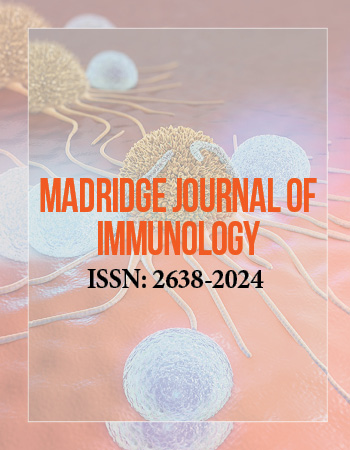International Conference on Immunology and Immunotechnology
November 1-3, 2017 Barcelona, Spain
Jinyangjo-Jangdan of DaegeumSanjo Musichas Positive Effects on Depression
1Department of Food Science & Technology, Hoseo University, Republic of Korea
2Department of Pharmacology, College of Korean Medicine, Kyung Hee University, Republic of Korea
Music therapy is a commonly used adjuvant therapeutic method in depression. The purpose of music therapy is to improve, maintain, remediate, or prevent clinical issues, as determined by need for habilitation and rehabilitation. Daegeumsanjo is a Korean traditional folk music played with a Daegeum (a traditional Korean transverse flute). Jinyangjo-jangdan provides catharsis as very slow rhythm in pansori or sanjo. However, the effects of the jinyangjo-jangdan of Daegeumsanjo (JJDS) on depression have not been investigated. In this study, we investigated the antidepressant-like effects of JJDS. Mice were exposed to JJDS music daily for 21 days. Immobility times in the forced swimming test (FST) and distance moved in open field test (OFT) were measured, and after the FST, levels of depression biomarkers were analyzed. JJDS music significantly decreased immobility times as compared with control, and increased levels of serotonin, brain-derived neurotrophic factor, phosphorylated extracellular signal-regulated kinase, and estrogen receptor-β in brains. Levels of inflammatory cytokine were significantly lower in mice exposed to JJDS music. Furthermore, JJDS music did not affect locomotor activity in OFT as compared control. These findings indicate that JJDS music therapy be considered a potential therapeutic intervention for the treatment of depression.
Biography:
Hyun-Ja Jeong was born in 1974 and received Ph.D. degree in College of Natural Science, Jeonbuk National University in 2003. She has been published about 200 articles about allergy, inflammation, cancer, and immune responses. She won Women scientist fellowship prize award from Korea Loreal-UNESCO and Womenʼs Bioscience Forum. In 2014 and 2017, she won the Best Research Teacher Award from Hoseo University. Currently, she is working in Hoseo University as an associate professor.


